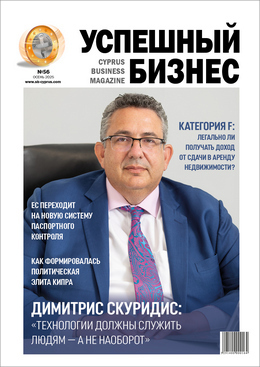Living a nomadic lifestyle became a trend in recent years. Paradoxically, the global pandemic helped promote the concept. Last two years proved that many of us could perform our job remotely with the help of technology.
More and more people want to be location independent – either while working remotely for an employer or by setting up their own business activity.
However, the nomadic lifestyle can bring up issues with a residency status, specifically with tax residency. Many travellers do not necessarily think about this in the first place and sometimes totally ignore their tax situation. Even if one decides to do a Tour Around the World, they should think in advance – where and how to declare the revenue. For some, this will be a country where they eventually return to. But those who do not have a permanent home and do not necessarily want to have one, should be very cautious about their tax residency strategy. Similarly, the same applies to the travelling entrepreneurs; they need to make sure that the residency of their business is well-established.
Fortunately, more and more digital nomads are aware of the problems that may arise due to the changes of location and prefer to carefully choose one country as a base and set up the tax residency there.
Digital nomads are privileged since they have the luxury to choose their tax residency country and legally save on taxes. At the same time, many locationindependent expats realised that they don’t have to be on a constant tour to benefit from а nomadic lifestyle. The concept of slow travelling becomes even more popular when we are facing travelling restrictions.
CYPRUS BENEFITS
For any type of nomads – those ‘on the go’ or those who prefer to stay in a place for longer – Cyprus is the ideal place to be.
Most importantly, in 2017, the government introduced very attractive residency rules – one of the best in the world. One can become a Cyprus tax resident when staying in the territory of Cyprus for at least 60 days in a tax year.
The 60-days rule can be used under the condition that this person does not spend more than a sum of 183 days in any other jurisdiction within a tax year and is not a resident (for tax purposes) of another jurisdiction within the same tax year.
A personal tax residency in Cyprus can be favourably combined with a business incorporation on the island since one of the conditions to acquire the residency permit is to be employed or to carry on a business.
Tax residents in Cyprus are taxed on their worldwide income; however, certain exceptions apply. A Cyprus tax resident but non-domiciled in Cyprus is exempt from taxation on his worldwide dividend and ‘passive’ interest income. When becoming a tax resident of Cyprus, the expats can benefit from no taxation of dividends and interest for non-domiciled tax residents – for 17 years of the residency (exemption from Special Defence Contribution which is a local withholding tax on passive income for domiciled tax residents).
Overall, Cyprus is a great jurisdiction to run a business and is often chosen by entrepreneurs for company structuring and tax planning. There are no capital gains tax on sale of securities (selling shares, stocks, various financial instruments) and no withholding tax on dividends, interests, and royalties. Even after the planned increase of the corporate tax rate to 15%, Cyprus will be still one of the most competitive countries to incorporate a company.
Cyprus offers one of the most favourable Intellectual Property systems. The IP regime, also known as the Patent Box or the Innovation Box, introduced in many countries to stimulate research and development (R&D) activities, results in lower taxes, by taxing profits derived from a licence, sublicence, sale, or transfer of eligible IP assets. Under the regime, 80% of the profit earned from the use of intangible assets can be deducted for tax purposes.
The VAT rate is 19% in the case of services rendered to entities in Cyprus or B2C. There is no VAT for the provision of services to entities located outside the EU and when selling B2B services between companies registered for VAT in the EU.
To continue with benefits of becoming a tax resident in Cyprus, we need to mention the 0% rate of the Personal Income Tax for income below €19,500 per year (once reached, it becomes 20-35% depending on the level of income).
Another great incentive is the expatriate tax relief for employment in Cyprus, which is supposed to be extended every five years. In practice, it is granting the application of the 20% or €8,550 (whichever is the lower) tax exemption on remuneration from employment which is exercised in Cyprus by an individual who was resident outside the Republic in the tax year prior to the commencement of his employment on the island.
For instance, under the current framework, as of January 1st, 2020, an individual whose employment in the Republic commences up to the year 2025, has the right to claim the relevant tax exemption for a period of five years (i.e. up to the year 2030 inclusive).
WHAT FUTURE BRINGS
When thinking of Cyprus, we should also appreciate the high-potential dynamic growing economy and investment opportunities. Recently the government decided to promote these qualities and to open for foreign capital.
Cyprus aims to welcome more expats, but not only from the EU, which is a gesture towards the Russian community.
Without a doubt, the current system provides the ease of residency permissions primarily to citizens of the EU countries. The expats from outside the EU zone usually struggle with legalising their residency.
The government introduced the socalled ‘Action Plan’ which will facilitate hiring of employees and offer tax incentives. Some of the proposals will be implemented as from January 2022, however tax relief and new rules for naturalisation will first need relevant legislation. The package is addressed to expats in general, but primary to all foreign companies operating in Cyprus or wishing to establish presence in the country, as well as for Cyprus companies in specific domains related to hi-tech/innovation, research and development, biogenetics and biotechnology, and shipping.
WHAT ABOUT CRYPTOS?
The Action Plan is a very good initiative and will certainly attract more foreign business.
It is a shame though, that the matter of cryptocurrency – being a current global issue and directly connected to digitalisation, is not even mentioned in the Action Plan. In Cyprus we are still waiting for a relevant legislation. The Tax Office in Cyprus is not willing to issue any guidance or interpretations in this matter. For now, since every Cyprus company needs to submit its financial statements, the role of auditors in qualification of such profits is significant.
This means that the interim taxwise solution for now would be keeping the cryptocurrency in a separate entity, like a company. In the current situation, the taxation of profits from cryptos on a corporate level seems to be a less risky option than declaring crypto profits as a physical person.
The only body that recently referred to the subject was the Cyprus Securities and Exchange Commission – when updating its policy of regulation of cryptoassets.
The CySEC document defined specific requirements for companies that seek to be included in the official register of service providers related to cryptocurrencies. At the same time, it describes cryptoassets, but… only those that are regulated… which, of course, is not the case yet. Depending on their structure, cryptoassets can be qualified as financial instruments. Also, without being an official means of payment, they can qualify as ‘electronic money’. Time will show how tax authorities in Cyprus will classify it.
Cyprus is an attractive destination for both business and individuals. Compared to other EU countries, it offers a unique work-life balance blended with a high-quality Mediterranean lifestyle.
In recent years Cyprus has become an international business centre, where many expats found their place to live and digital nomads a great base to stay. With such great potential, it seems to be on the right course for the next decades.
Jowita Jablonska
Founder of CDX Trust – Nomads Club
Этот адрес электронной почты защищён от спам-ботов. У вас должен быть включен JavaScript для просмотра.
CYPRUS ’ACTION PLAN’ HIGHLIGHTS
New policy for employing non-EU country nationals
Issuing of temporary residence and employment permits in Cyprus for high-skilled third-country employees, with a minimum gross monthly salary of €2,500, while a university degree, title, equivalent qualifications, or certificates of relevant experience are also needed.
Family reunification of third-country nationals
Family members of non-EU employees, who are employed under the new residence permit provisions, will also have immediate and free access to Cyprus labour market.
Digital nomad visas
Initially, with a limit of 100 beneficiaries. Digital Nomad Visa is for third-country nationals who wish to live in Cyprus but work remotely for companies operating abroad. The visa will be granted for a period of 12 months, with the right to renew it for another two years. The amount of sufficient resources is set at €3,500 per month.
Application for Cypriot citizenship
Right to submit an application for naturalisation after 5 years of residence and work in the Republic of Cyprus (instead of 7), or after 4 years if they have a recognised certificate of very good knowledge of the Greek language.
Business Facilitation
In areas of hi-tech/innovation, research and development, shipping, biogenetics and biotechnology. Ease of establishing and administering companies shall be improved (company registration, name approval, registration to social insurance, registration to VAT).
Extensions of expatriate reliefs
• Current expat employees will be able to extend the benefit to 17 years.
• Income tax exemption of 50% to new residentsemployees with income between €55,000 and €100,000 for the remaining period of 17 years.
These tax incentives also apply to Cypriots who have lived abroad for at least ten years and wish to repatriate to the Republic.
One could say that this proposal seems to be a little excessive. According to the Plan, tax exemptions addressed to foreign high skilled employees in Cyprus is to be extended for a period of 17 years. It is the same period as current benefit for non-domiciled tax residents. When it makes sense to establish such long period for incentives related to domiciliation, it is not so common to introduce such extensive relief related to the employment. For this reason, we can never take for granted that such benefit would stay within the system for longer.
Tax incentives for R&D expenses and for innovative investments
• Granting an increased discount on research and development expenses (e.g. by 20%)
• Possibility of extending the tax exemption to 50% for investment in certified innovative companies and by corporate investors.







